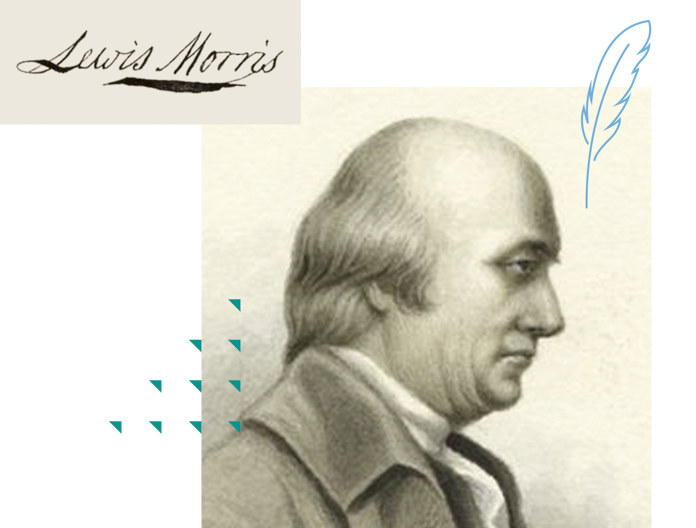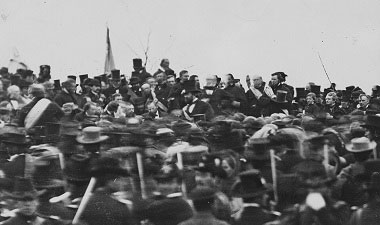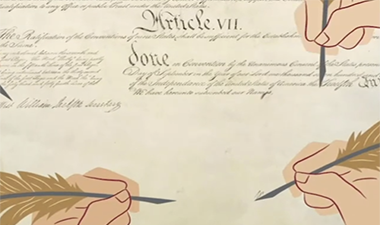Summary
Lewis Morris had to wait for approval from New York’s Provincial Assembly to sign the Declaration on July 9, 1776. The British invasion of New York left his estate in considerable ruin.
Lewis Morris | Signer of the Declaration of Independence
2:46
Biography
Lewis Morris, the eldest son of his namesake Lewis and his Dutch mother Katrintje Staats, was born in the elegant manor house of the sprawling New York estate known as Morrisania. He was tutored at home until, at sixteen, he went to Yale. After graduating, he returned to Morrisania to help his father manage the family’s large agricultural enterprise. When his father died in 1762, 36- year- old Lewis became the Third Lord of the Manor of Morrisania. By this time he was married to Mary Walton and seven of their ten children had been born.
Like most wealthy men, Morris was called upon for public service. In 1760, he was appointed a judge of the Court of Admiralty, and in 1769 he took his seat in New York’s Colonial Assembly. Over the course of the 1760s, as Britain revamped its colonial policies and began to impose novel taxes and regulations on the colonists, Morris became increasingly critical of the Mother Country. In 1774 he resigned his judgeship in the royal Admiralty Court and began an active role in the New York Convention which was essentially the government of New York. Although many of his wealthy neighbors remained loyal to the Crown in the 1770s, Morris had made his choice: he would support resistance to British policies. By May of 1775 he was on his way as a delegate to the Second Continental Congress. Here, he was quickly assigned to an important committee dealing with the problems of supplying arms and ammunition to the newly created Continental Army. The Congress then sent him to the western frontier to persuade Native Americans to either support the colonial cause or remain neutral if war with Great Britain began in earnest. By the time he returned to congress in March of 1776 the debate over independence had begun.
Morris was ready to see the colonies separate from Britain, but the New York Provincial Assembly was not. Loyalty to the King was strong among many influential New Yorkers and so political leaders in the assembly dragged their feet. It was not until July 9, 1776, that they agreed to support a declaration of independence. This allowed Morris and his fellow New York delegates to formally approve Jefferson’s Declaration of Independence on July 11th. Morris continued to serve in the Congress until 1777 when his younger brother, Gouverneur Morris, replaced him. He returned to New York to take a seat in the state Senate.
The war that followed was costly to Lewis Morris. The British invasion of New York left his beloved Morrisania in considerable ruin. The fields and their crops were destroyed, the manor house looted, fences burned, and livestock slaughtered or driven away. When peace came, Morris devoted much of his time to restoring his estate. He studied agricultural advances, learned the benefits of crop rotation, and introduced new cross-bred cattle and hogs to replace the livestock he had lost. Still, he made time for duties as a judge in Westchester County and served as a state senator from 1777 to 1781 and again from 1784 to 1788 . When the New York convention met in 1788 to ratify the Constitution, Morris was one of the delegates voting in favor of the new frame of government.
Morris died on January 22, 1798 at the age of 71.








